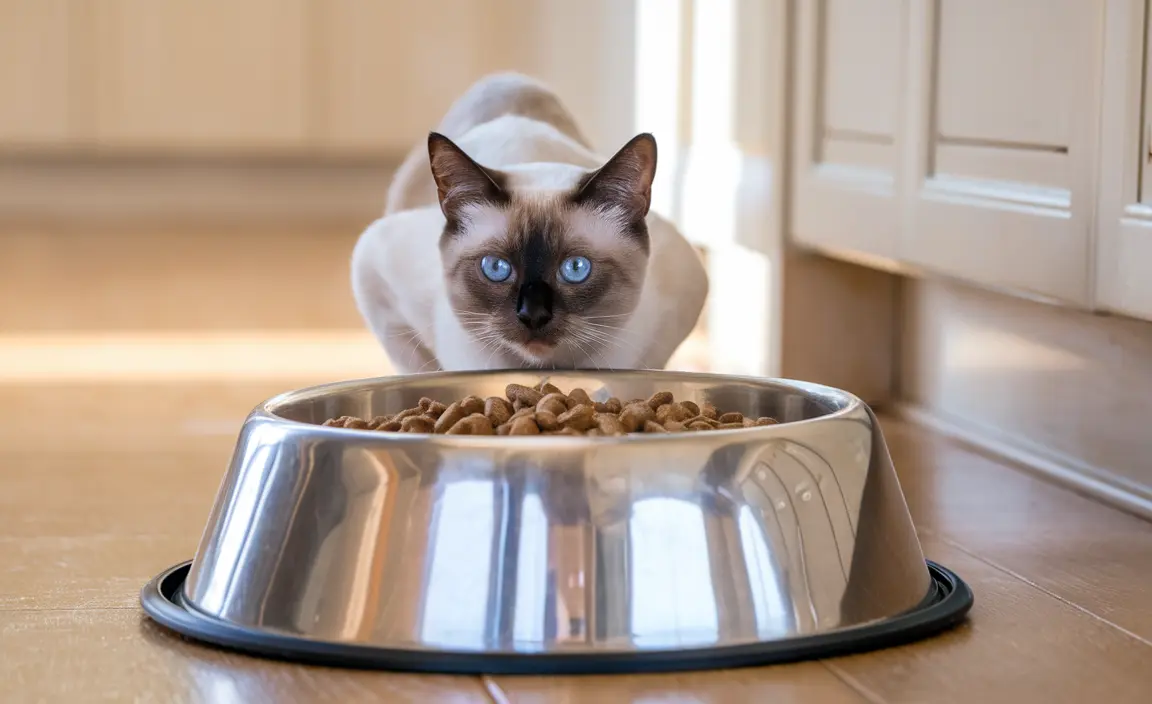As a pet owner, you may have wondered about the dietary habits of your furry companions, especially when you catch your curious kitten nibbling on your dog's kibble. While it might seem harmless, understanding the nutritional differences between cat and dog food is crucial for maintaining your feline friend's health and well-being.
This comprehensive guide will explore the risks, implications, and best practices for preventing your cat from consuming dog food, ensuring your pet receives the optimal nutrition they need to thrive.
Understanding Cats' Unique Nutritional Requirements
Cats are obligate carnivores with highly specialized dietary needs that differ significantly from dogs. Unlike dogs, who are omnivores, cats require a diet rich in animal-based proteins, specific amino acids, and nutrients that are essential for their survival.
Why Dog Food Isn't Suitable for Cats
Dog food lacks several critical nutrients that cats must obtain through their diet, including:
- Taurine: An essential amino acid cats cannot produce on their own
- High-quality animal protein
- Vitamin A in its active form
- Arachidonic acid
- Specific moisture content
Short-Term vs. Long-Term Risks of Dog Food Consumption
Occasional Snacking: Not Immediately Dangerous
An isolated incident of your cat eating a few pieces of dog kibble isn't typically cause for alarm. However, making it a habit can lead to serious health complications.
Potential Health Risks of Regular Dog Food Consumption
Prolonged or exclusive consumption of dog food can result in severe health issues for cats, including:
- Protein malnutrition
- Weakened immune system
- Heart disease
- Vision problems
- Organ damage
- Potential fatal malnutrition
Preventing Food Mix-Ups in Multi-Pet Households
Practical Strategies to Keep Foods Separate
Implementing a few simple strategies can help prevent your cat from accessing dog food:
- Establish scheduled feeding times
- Feed pets in separate rooms
- Use automated or timed pet feeders
- Remove food bowls immediately after mealtime
- Create designated eating areas for each pet
Monitoring Your Cat's Diet and Health
If your cat accidentally consumes dog food, monitor them for any unusual symptoms such as:
- Vomiting
- Diarrhea
- Constipation
- Lethargy
- Changes in appetite
Contact your veterinarian if symptoms persist or appear severe.
Frequently Asked Questions
Is dog food safe for cats to eat occasionally?
Occasional, small amounts of dog food are not toxic, but they should not become a regular part of your cat's diet. Always prioritize cat-specific nutrition.
What happens if a cat eats dog food regularly?
Regular consumption can lead to nutritional deficiencies, potentially causing serious health issues like heart disease, weakened immunity, and organ damage.
Why can't cats survive on dog food long-term?
Cats require specific nutrients like taurine, higher protein levels, and different vitamin compositions that dog food cannot provide, making it nutritionally inadequate for felines.
What are the immediate symptoms if my cat eats dog food?
Mild symptoms might include temporary digestive issues like vomiting or diarrhea. Serious symptoms warrant immediate veterinary attention.
How do I stop my cat from stealing dog food?
Use strategic feeding schedules, separate eating areas, and promptly remove dog food bowls after mealtimes to prevent access.
By understanding these nutritional nuances and implementing preventive strategies, you can ensure your cat maintains optimal health and receives the precise nutrients they need.






